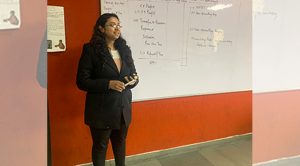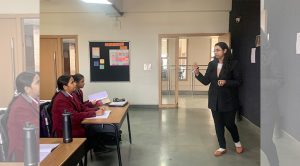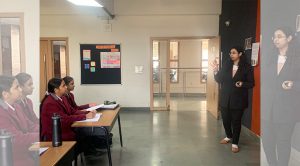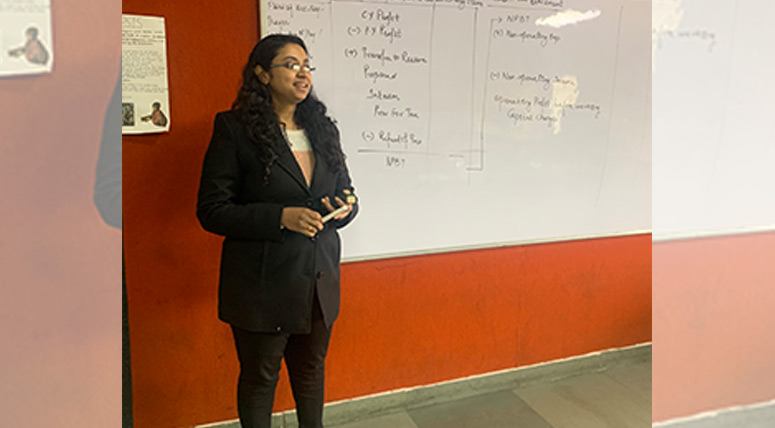CBSE Class 12 Accountancy Syllabus emphasizes the understanding of fundamental comprehension of the nature, purpose of accounting information and its importance in the process of business operations. This enhances the logical reasoning, analytical skills, and judgmental potential of the students. Studying accountancy enables a student to discover various causes of the successes and failures of different business entities. Accountancy teaches the art of recording, classifying, analyzing, and summarizing financial reports, taxes, and other reports in a significant manner in terms of money. It is one of the main subjects for the students who have opted for the Commerce Stream. Here are some Tips and tricks by a seasoned Expert of Manav Rachna International School for the Accountancy Paper of Grade 12. #CBSEXAMTipsTicks12th ~ Editor.
FROM THE EXPERT’S DESK
EXAM TIPS ON ACCOUNTANCY
Accountancy is a theory as well as practical based subject. With regular practice, right planning and proper preparation, students can get good scores. Getting a 100/100 in accountancy is not difficult. But, if you are aiming 100, you can’t expect it to happen overnight. I would say Accountancy should never be learnt by heart rather should be understood. Try to understand the basics and concepts related to the topic. For example, instead of rote learning, try to understand the reason behind the derivation of the formula. It will help you to understand and clear concepts well.
Class 12 Accounts Exam for the CBSE will include a Theory Exam of 80 marks and a Project Work exam for 20 marks. The subject code for class 12th accountancy exam is 055. Examining students on three criteria is the goal of the CBSE Class 12 Accountancy Exam Pattern, i.e.,
- Remembering & Understanding- 44 marks
- Applying of knowledge & Information- 19 marks
Analyzing, Evaluation and Creativeness- 17 marks
 PATTERN OF PAPER- The latest pattern of paper is as follows:
PATTERN OF PAPER- The latest pattern of paper is as follows:
Marks x Ques
1 x 20 = 20 marks
3 x 6 = 18 marks
4 x 3 = 12 marks
6 x 5 = 30 marks
80 marks/ 34 ques
One marker of 20 questions will include 1 question of assertion reasoning.
Part A Q.1 to Q.26
Part B Q.27 to Q.34
Preparation Ideas
Theory: It is a smart idea to first gain a solid understanding of the theory in order to be prepared to answer the majority of accountancy difficulties. Go over the concepts, theories, and explanations before moving on to the application section.
Study Method: Regular practise is important for accounting students. To solve as many issues based on the theories of accounting, ledgers, balance sheet, etc., students should become familiar with them.
Presentation: Your demonstration of the solution will earn you just as many marks as the actual response. Create acceptable tables with appropriate formats and headings that are appropriately labelled. When solving issues, be clear in your presentation and take adequate working notes.
Practice: Regularly review the memorizing portion to ensure that you can still recall the statistics portion. Practice with Question Papers from Previous Years and Sample Question Papers.
Project: It’s a good idea to read more; for information on suitable format and project flow, see the CBSE guidelines.
Few tips to be followed:
- Before exam
- Solve maximum Sample papers and Previous year papers. These papers will help you prepare and analyze the most important concepts. It will also help you in analyzing past trends which will help you prepare better.
- Also, for better time management sit with a timer and note the time taken to solve each category of questions and try to improvise it every week.
- Refer to toppers answer sheet issued by CBSE to understand the way to solve question paper.
- Pay attention to format.
TOPICS TO FOCUS –
- Accountancy has five very important chapters.
- Focus on revisiting them now and over the next few days. They are:
-
- Fundamentals
- Admission of partner
- Share capital
- Ratio analysis
- Cash flow statements
- Remaining Chapters should be revised after you’ve finished the above mentioned.

Some chapter-wise tips –
- Cash flow – Leave a line after every item you write (this will help you maintain neatness when you remember another item of previous head after moving further). And don’t forget to write the total of every activity firstly by pencil until the final total matches up.
- Dissolution – Prepare all accounts simultaneously (realization, partners’ capital, bank) i.e., record both aspects of entry together in both accounts that will save a lot of time.
- Shares and debentures – First of all write the journal entry and number of shares in it. This will help you to prevent errors of taking wrong no: of shares in a hurry.
CALCULATIONS– You should not waste time with minor calculations. It should be on your fingertips. You should be swift with your calculations which can happen if you practice the numerals over and over again.
- Try to make a strategy for the final show, for e.g.
- Will first finish part B first, and then move on to part A or vice-versa.
- Maintain the sequence in each section.
- Strategize and try to solve the papers.
- Solving the Mock Papers in 3 hours HELP.
- You will get to know where you lack- Is it time management skills OR calculations OR anything else.
- Try to find out what’s missing and work on that.
- And the most important thing is PRACTICE! This subject will require a lot of practice and you will be perfect.
- During exam
- Try to solve financial statement analysis at the end of the all questions, because it contains a lot of calculations.
- Always do a numerical question from a fresh page, try to complete an account/ statement on a single page.
- You must draw up a proper format for Balance Sheet, Ledger accounts and Journals and must write narrations in the case of journals. Use scale to improve your presentation.
- Show your Working notes clearly with appropriate statements.
- You should always write formula for ratio analysis.
- Read the question at least twice properly before answering.
- Underline the important points of the question which will be useful for quick glance while solving the question.
- Start by answering to the questions about which you are the most assured. As long as you mark the questions right, there is no requirement that you answer to them in order.

BONUS TIP– Always remember:
- Solve the sample paper provided by CBSE.
- It will help you in understanding the pattern of the paper.
- Sometime 2-3 questions are asked from the sample paper released by CBSE.
- Don’t stick to a particular question if you find difficulties to solve. Just move on and solve other questions to avoid wasting time.
Remember a little progress each day adds up to big results. Wishing you all the Best for Exams!
Author: Ms. MANITA LAL, PGT ACCOUNTANCY, MANAV RACHNA INTERNATIONAL SCHOOL, NOIDA.





